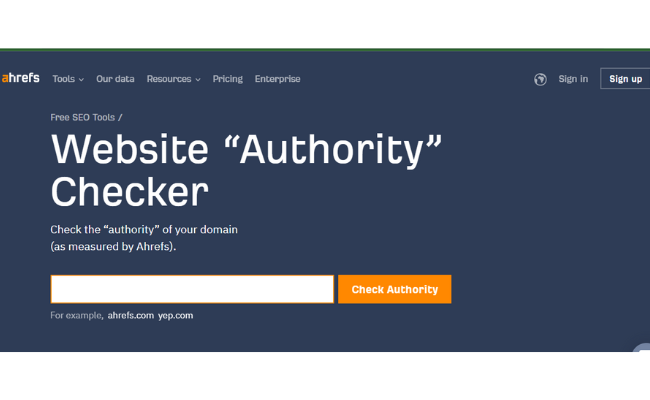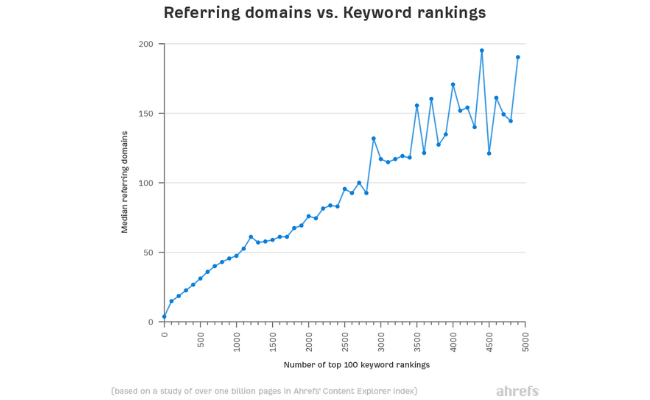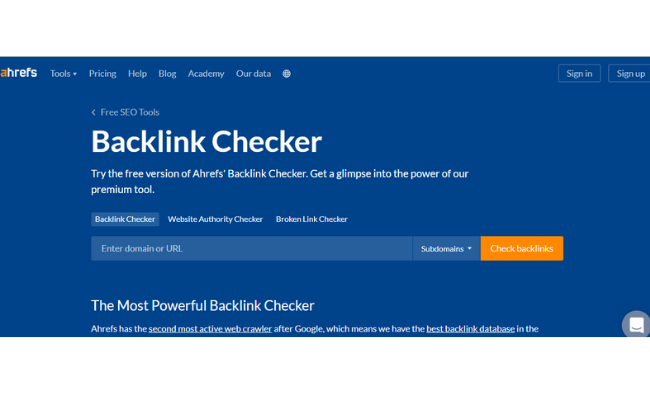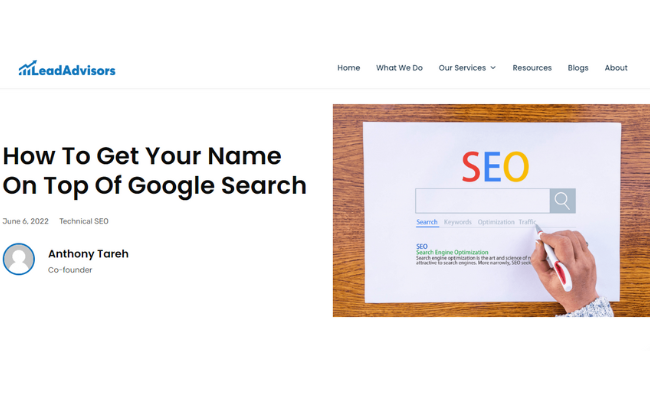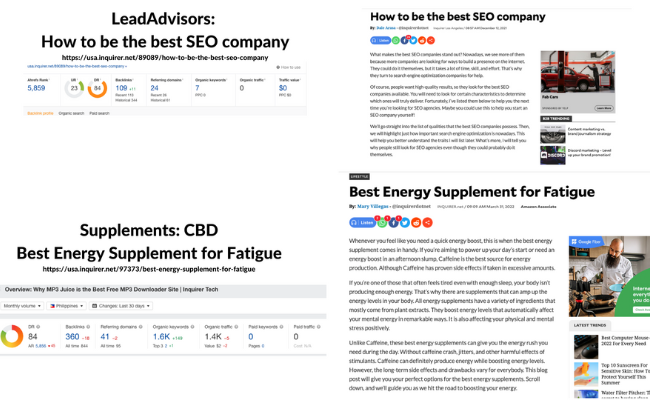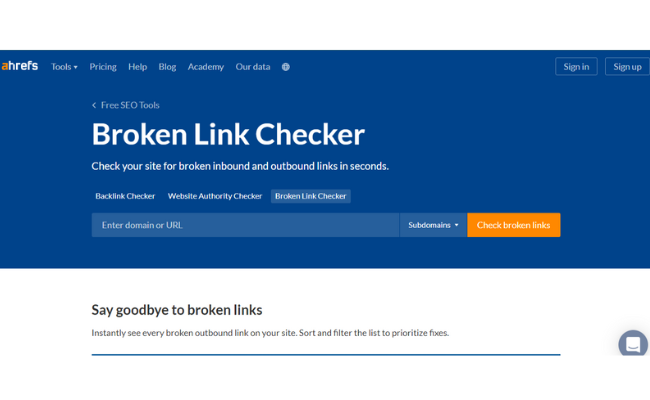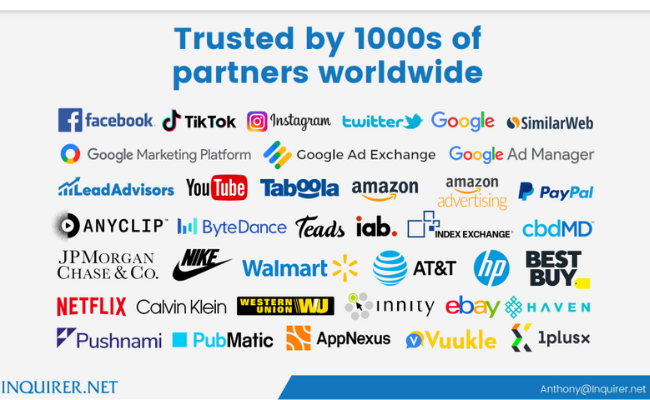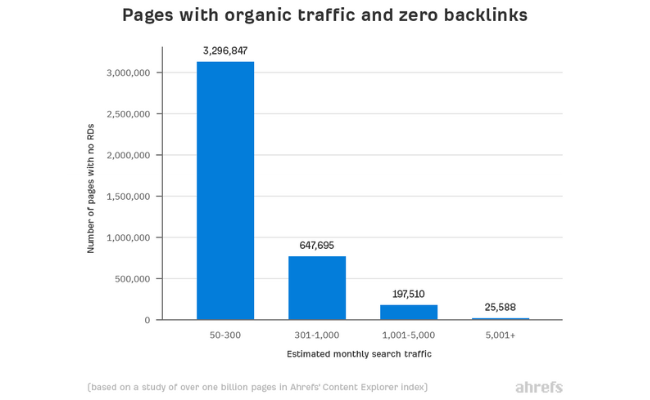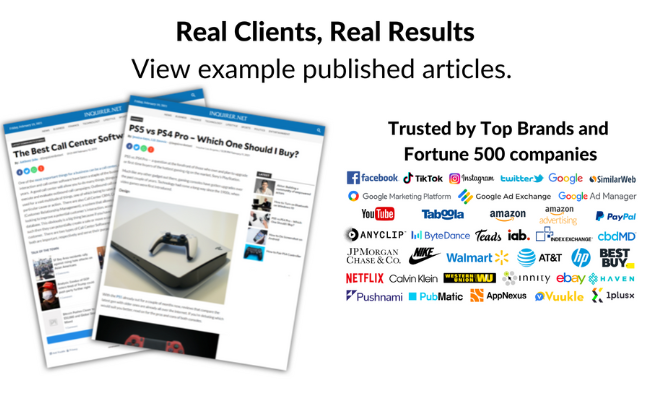The Power of Links: How Many Does it Take to Get Ranked on Google?
With Google analyzing sites based on hundreds of ranking factors, knowing where to aim your SEO strategy for the most prominent result might seem infeasible.
Furthermore, there’s an oversaturated amount of articles claiming to be ranking factors. It’s hard to know which SEO tactics work and which are just myths. We’re here to help clear the air. This guide will cover all related to backlinks and how to earn them.
Ranking Factors: What really matters for SEO?

Google stated that backlinks are one of their top three ranking factors. A backlink is a link from one website to another. Backlinks are “inbound links” or “incoming links.”
A website with many backlinks is more likely to rank higher in the search results than a website with fewer backlinks. Additionally, backlinks can also help to increase traffic to a website or web page.
Why does Domain Authority Matter?
Domain authority (DA) is an SEO metric used to find the strength of a website’s backlink profile. The higher the domain authority, the more authoritative the website is. A website with a high domain authority is more likely to rank higher in search engine results pages (SERPs).
Check your domain authority or your competitor’s using the Ahrefs domain authority checker.
What makes a valuable link?
Backlinks are one of search engines’ most crucial ranking factors, but not all links are created equal.
- Authority: A backlink from a high-quality, relevant website will be worth much more than a link from a low-quality or irrelevant site.
- Context: In addition, the context in which you use a link is also crucial. A link surrounded by relevant, helpful content will carry more weight than a link buried in a sea of unrelated text.
As a result, it is essential to focus on building relevant and high-quality backlinks if you want to improve your search engine rankings.
SEO isn’t just about link building:
Links are just one small part of the SEO puzzle. There are a few other factors that contribute to a website’s search engine ranking, including:
- Site Design
- Content (Relevance & Depth)
- Site Structure
- Click Through Rate
- A Secure and Accessible Website
- Page Speed (Including Mobile Page Speed)
- Mobile Friendliness
- Technical SEO
- Social Signals
- etc.
To guarantee that your site is optimized for search engines, it’s essential to consider all these factors. By understanding how SEO works, you can develop a comprehensive strategy to help your website rank highly on search engine results pages.
Are Backlinks still essential?
According to an Ahrefs study, the correlation is clear: the more backlinks a page has, the more organic traffic it gets from Google.
While Google’s indexing algorithm has evolved over the years, backlinks remain a crucial part of how the search engine determines which websites should be ranked higher than others. Google’s algorithms have become much more sophisticated, considering various factors when determining where a website should rank.
[forminator_form id="101900"]In addition to backlinks, Google also looks at things like bouncing rate, time on site, and content quality. As a result, a well-rounded SEO strategy is essential for any business that wants to succeed online.
Therefore, when building backlinks, there should be a focus on quantity and quality. With a myriad of competition online, it’s critical to ensure your website is as visible as possible in Google’s search results.
How many backlinks do I need to rank?
As with most things in SEO, no magic number of links will guarantee success. SEO is all about ranking high in the SERP for relevant keywords. If a target keyword has a difficulty of 10, you presumably need about ten backlinks to rank. With 50, you may need 100 backlinks to rank.
But exactly how many backlinks does it take to achieve those coveted top spots? Unfortunately, there is no easy answer. The number of backlinks required depends on several factors, including:
- the quality of the links
- the competition for your target keyword
- the age of your website.
However, a handful of general principles can help guide your link-building efforts.
Identify Competition
You’ll need to build more links than your competition to outrank them. And if you’re starting, you’ll need to build more high-quality links to catch up.
The easiest method to do this is to utilize a backlink report. A backlink report will show you how many backlinks your competition has, as well as other important information, such as the quality of those backlinks. Armed with this information, you can then take steps to improve your own website’s backlink profile and outrank your competition.
Incremental Process
It’s pivotal to build links gradually. If you try to acquire too many links too quickly, you may trigger Google’s spam filters and end up being penalized.
Variety
Finally, it’s vital to diversify your link sources rather than relying on a few handfuls of sites for all your backlinks. Try to build links from various websites.
Following these guidelines can boost your chances of building your backlink profile to achieve high search engine rankings.
How Do I Gain Backlinks?
While there are several ways to acquire backlinks, a link-building campaign is a series of strategies designed to acquire free backlinks. Link-building strategies can significantly increase the number of backlinks pointing to your site, leading to higher search engine rankings.
Here are some tips for building better-quality backlinks:
Write Long-Form Articles
According to Semrush, 3x more traffic comes from “Guide” articles, and 1.5x more organic traffic comes from “How To” blogs. By crafting great evergreen content and satisfying and matching user search intent, you increase the chances that other websites will link to your site.
While there is no guarantee that every piece of content you create will generate backlinks, taking the time to craft quality content and investing in content marketing is always worth the effort.
Create Infographics
Fifty-six percent of companies use infographics, and 84 percent find them compelling. Infographics have become increasingly popular over the last few years to convey information in a visually appealing and easy-to-understand format.
If you’re looking to create your infographic, there are a few things to remember.
- Guarantee that the topic is something that will be of interest to your target audience.
- Choose an eye-catching template or design that will help your infographic stand out from the crowd.
- Don’t miss to include a call-to-action at the end of your infographic, urging viewers to visit your website or take other desired action.
When done well, infographics can be an extremely effective tool for raising brand awareness, generating backlinks, and driving traffic to your website.
Strategic Guest Posting
If you’re looking to improve your site’s SEO, one of the best things you can do is to guest post on high-quality websites.
You can earn backlinks from authority websites in your industry by publishing articles on reputable sites. It not only helps to improve your site’s search engine rankings but also helps to build your brand’s reputation and increase traffic to your site.
It’s decisive to select the sites you guest post on carefully. Choose sites relevant to your industry and with high domain authority.
Also, be sure to write compelling and informative articles that will capture the attention of your target audience. If performed correctly, guest posting can be a powerful SEO ranking factor.
Anchor Text Optimization
It is prominent to focus on anchor text optimization to maximize the SEO benefits of backlinks.
Anchor links are backlinks that contain keywords related to the target website. For example, an anchor text might include the keyword “gardening supplies ” if a website sells gardening supplies.” By optimizing an anchor text, a site owner can help their sites rank higher on search engine results pages.
Additionally, they can drive targeted traffic to their sites by including keywords that potential customers are likely to search for.
Capitalize with Broken Links
In parallel to a Semrush study, 42.5 percent of websites have broken links. One way to refine your website’s search engine ranking is to fix broken links.
Also known as dead links, hyperlinks no longer lead to the intended web page. When a search engine crawler index your site and encounters a broken link, it will mark your site as outdated and lower your ranking.
How to do it:
One method to find broken links is to use a free online tool such as Dead Link Checker or Ahrefs Broken Link Checker.
- Enter your URL, and the tool will scan your site for broken links.
- Once you’ve found the broken links, contact the site owner and ask them to update the link. In most cases, they’ll be happy to oblige.
By taking this easy step, you can aid improve your site’s ranking and get more traffic.
Build Relationships Within your Industry
Another effective way to build links is to network with other bloggers and influencers in your industry. You can perform this by leaving comments on popular blogs, participating in online forums, and attending meetups and conferences.
By networking with other individuals in your industry, you can get your site in front of a much wider audience and build high-quality backlinks.
Common Link Building Strategy Mistakes to Avoid
Getting all the links, you conceivably could is neither feasible nor organic.
- Buying links.
- Spamming links in comment sections.
- Link schemes.
- Misleading redirects.
As mentioned, link building takes patience and time. It is not a “set and forget” endeavor.
What is a High-Quality Backlink Profile?
Google’s John Mueller stated that not all links you receive bring you value. A backlink must meet a few requirements for it to be high-quality.
High-Quality Sites
The backlink should come from a reputable, well-established website with high domain authority and good search traffic.
Relevant
The backlink should be placed on a relevant or specific page closely related to your website’s topic.
The backlink should also use keyword-rich anchor text related to the target page. For example, if the target page is about “dog food,” the backlink should use keyword-rich anchor text such as “dog food,” “best dog food,” or “organic dog food.”
Trusted Source
Avoid reciprocal backlinks. It is when two websites agree to link to each other. This is typically done to improve both websites’ SEO performance. However, reciprocal backlinks can do more harm than good. Google may view them as unnatural or manipulative, which can also result in a penalty if you’re not careful.
If a backlink meets all of these criteria, it is considered high-quality and will help improve your website’s search engine rankings.
What are do-Follow Backlinks?
Dofollow backlinks are quality backlinks that pass link juice, or link equity, from one site to another. Link juice is a ranking factor that helps determine the importance of a webpage.
By contrast, Nofollow links are low-quality links that do not pass along link juice. Google introduced nofollow links in 2005 to combat blog comments spam. It is a low-quality backlink because it is irrelevant to the blog post’s content and does not come from a trusted source.
One way to tell the discrepancy is by looking at the link’s “rel=nofollow” attribute. This attribute tells search engines to ignore the link when determining the linked-to website’s popularity.
An amalgamate of dofollow and nofollow links is ideal.
Can I Rank without Quality Backlinks?
It’s a common misconception that a website page must rack up a certain number of backlinks to rank highly on search engines.
While backlinks are undoubtedly a critical factor in Search Engine Optimization (SEO), it’s not the be-all and end-all. It’s entirely possible for a page to rank highly without reaching a specific number of backlinks – so long as the page has high-quality content.
Ahrefs conducted a study if it’s possible to get organic traffic without links.
The data suggest that pages without backlinks on high-authority sites are slightly more likely to get traffic than those on low-authority sites. This is presumably because they utilized internal links to pass PageRank to new pages.
Search engines are constantly evolving, and their algorithms are becoming more and more sophisticated. As a result, they’re increasingly able to identify pages with solid content – even if those pages don’t have a lot of backlinks. So while high-quality backlinks are still a significant part of SEO, they’re not the only thing that matters.
Related Articles
The Many Ways In Which SEO Backlinks Help Your Website Get More Visitors
Takeaways
Backlinks aren’t just about quantity. There are myriad ways to a successful backlink strategy, but some of the most effective include guest blogging and creating helpful resources for linkable content. Whatever method you choose, concentrate on quality rather than quantity.
Your actual challenge isn’t link building but earning trusted, quality, and natural links. It’s not about the number of links—it’s the quality that counts.
To get started on your link-building strategy.
LeadAdvisors shape narratives and perceptions with informative content and powerful storytelling to drive conversations, elevate brand awareness, and achieve exceptional results.

